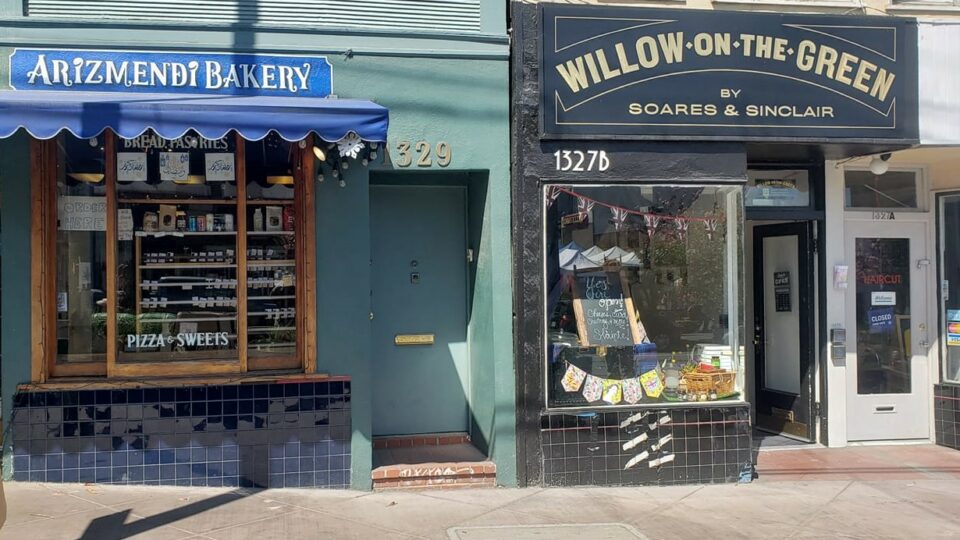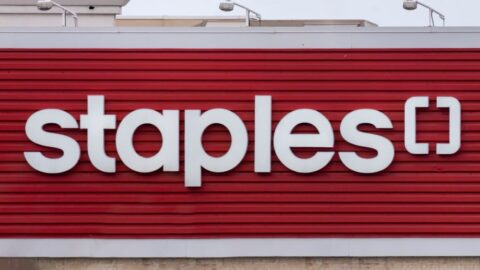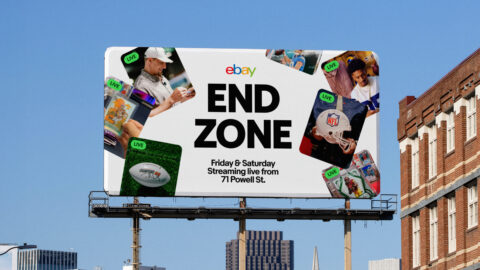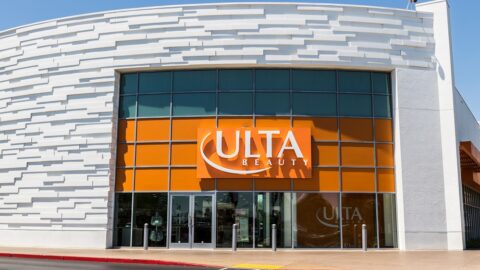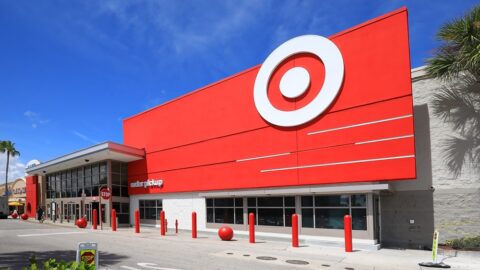This story is part of Retail TouchPoints’ ongoing “Small Business, Big Ideas” series, focusing on smaller retail brands that have found big success and have even bigger ambitions.
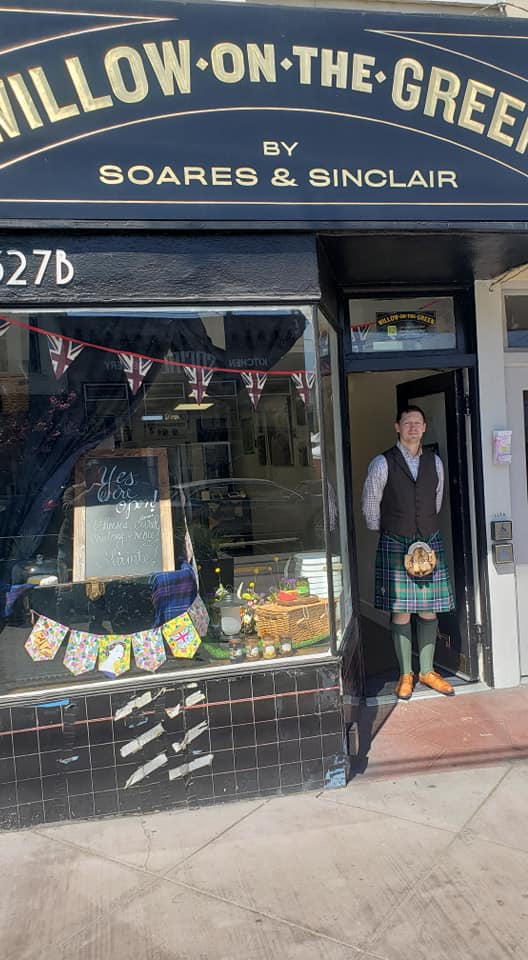
Alex Sinclair is Scottish, although you’d have a hard time telling it from his accent, which is more of the posh London variety. “I was raised in England and according to my staff, my Scottish accent only appears when I do two functions in the shop — when I take money or I say goodbye,” he said. “I feel deeply culturally worried that this is a genetic thing, and I cannot undo it.”
Whether north or South of Hadrian’s Wall, he’s a legit Brit, which gives him all the street cred he needs for his business as the owner of the San Francisco-based Willow on the Green. More often it’s simply referred to as the “British cheese shop” though, not only because “Willow on the Green is a very esoteric name,” admits Sinclair, but also because “as far as we can tell, we’re the only British-dedicated cheese shop in America,” he said.
So how does one get into such a niche area of retail? We sat down with Sinclair to find out. In the process we learned a lot about cheese, naturally, but also how thoughtful curation has helped him create a thriving local business in a country where his product is largely unknown (despite being a former British colony).
Retail TouchPoints: Tell us how the shop started and where you came up with the name.
Alex Sinclair: I started the business in the middle of COVID. Normally I go home every other year and get my fix of Michelin food and fancy stuff that you can’t get in this country. But I couldn’t go home, couldn’t see family, couldn’t do my usual thing, so I basically started my own shop so I could get access to what I would have at home. There was an open slot next to a bakery, and I figured cheese and bread together would work.
As for the name, I have a bit of an old school bent. Willow trees make picnic baskets and it’s also the basket that’s used to mold cheese in. Our shop is faced on a parklet, a common green, so Willow on the Green basically means “picnic on the park.” The funny thing is that because I have Scottish roots many people call it Willow on the Glen, to the level that I had to buy the domain so it forwards back over to me.
RTP: This is not meant to be disparaging, but are the Brits really known for their cheese? One typically thinks more of France or Italy in that regard.
Sinclair: Well France had good billing by the Roman Empire, but we Brits have been producing cheese for about 5,000 years, longer than we’ve been making bread. However, most of the early cheeses that we created were goat and sheep because that’s what you have in the UK, not cows; we imported that livestock.
Essentially cheddar was taught to us via Rome, and that’s when Cheddar Gorge [in Somerset, England] got its start. But then after the World War and with the ’80s corporate greed type of thing, creameries took over a lot of the traditional makers and marginalized and almost killed our industry. In the last 30 years, though, we’ve had a boom. We went from having five creameries making 10 cheeses — and killing all of our history — to 870 varieties.
That’s where it becomes very interesting, because now our industry is mostly making cheese for Brits, not for anyone else, since [other countries have made a name for themselves in cheese]. We ended up in a scenario where it’s like, okay, well you don’t really want our stuff: Wensleydale sounds funny, Stilton is an upper crust thing and Cheddar is default, but because we never protected the word it can be used in this country, in America.
RTP: So how are you bucking that stereotype with your shop?

Sinclair: One factor is that because Brits are historically and genetically lactose intolerant to specific breeds, over centuries we’ve developed farming practices to cope with it. In the UK, lactose intolerance is not a concept, but that’s because our farming practices don’t allow for things like meat-producing cow breeds to be mixed with milk-producing cow breeds. Also, we don’t feed them allergens and they’re generally grass fed.
Part of the reason this shop came about is because I lived in America for a while and then I ended up in Japan for about five years. In this country, I couldn’t eat any cheese. I just kind accepted it and [decided I had] developed an allergy, but when I went to Japan, I didn’t have a single issue. Came back to America, and all the issues came back. I live in a neighborhood in San Francisco that is traditionally Southeast-Asian Pacific and Western European, both [cultures] that don’t want to eat anything that will upset them. They’ll eat European cheese as a luxury but not every day. But if you put British cheese in front of them and say, “You don’t need to have an enzyme capsule,” and they have it and they’re perfectly fine, then that changes the game.
So we designed the shop to be very specifically focused on British cheese. We also carry some domestic cheeses, but those are mainly goat- and sheep-focused because goat cheese is 99% nonreactive. But it’s better to put a British flag over the shop than say “We’re the kings of lactose intolerance-supportive cheese.”
We do cheese tastings every weekend, and it’s not because we’re trying to make sales, although I love that, but it’s more of an education process. You have to train a whole generation and a whole neighborhood and city about A, what British cheese is, and B, what cheeses [lactose-intolerant shoppers] can actually have.
RTP: What else does your shop carry beyond cheese, and what are you looking for in terms of the product assortment?
Sinclair: Just the same way as I go farm to farm curating cheeses, I’m going to small manufacturers and independent makers in the UK, specifically Scotland, Wales and England, and bringing those products into America for the very first time.

There’s a company called Olives Et Al that brines its olives in olive oil, it’s very beautiful. There’s Puckett’s Pickles by Sarah Puckett; she does condiments very, very nicely. We also work with PekoeTea in Edinburgh and Isle of Skye salt — that’s a couple that hand-rakes sea salt from the Isle of Skye. It’s very, very niche, little-known products that, if you were in London you would find in the most luxury-oriented stores, but not a general supermarket. [It’s great for the brands too because] we promote them hitting California for the first time. It becomes a feedback loop where locals in the UK will go, oh, very fancy people in California love this thing, we should try it too.
We also just got our beer and wine license — it took eight months to get it through the San Francisco system. So now we’ve got British sparkling wines, British ales and ciders. And of course, if you’ve got cheese you need crackers and biscuits; if you’ve got biscuits, you need tea.
There’s sort of a balancing act, but if I don’t keep my customers always engaged and excited for what is coming, then I have no way to keep them in my store and to spread the word out about what the shop is. You can go to Trader Joe’s or World Market and grab cheap British product very easily. So why would you come to me? We need that level of curation, but also that level of distinction.
I think the difference between my shop and other British businesses is that the focus in this country tends to be on selling candy or sweets, selling nostalgia. [When that’s the case] you’re not selling the best of British, you’re selling what you would get in a corner shop or a lower-grade grocery store, things that are commodity level but sell for an extended profit here. And that’s not really what I’m going for.
I find products on [B2B marketplace] Faire. I also have seven British distributor-importers that I work with for other non-exclusive, non-specialty stuff. Then I have three cheese distributor-importers I work with, sometimes four or five if I’m pushing into the rarer stuff. And right now I have four alcohol distribution importers. We’re a 350-square-foot shop — all that business just to have this small niche.
It’s about 1,600 SKUs but they’re not always sitting there at all times. My MBA thesis was linked to subscription video-on-demand systems and tactics. Netflix, Hulu, Disney Plus, Max — it’s all about how you keep someone engaged through surprise and interest. That’s all I’m doing here, but with food.
RTP: You refer to yourself as a cheesemonger. Does that require any special certification or training?
Sinclair: Well, cheesemonger in America comes in different flavors. You have sales reps of cheese, you have developers that work with cheese makers, and then you have people who do work treating cheeses, but there’s no real training. There’s the American Cheese Society that does some certification, but the concept of cheesemonger in America has always been, to me, a very loosey-goosey term.
In the UK, it requires specific things, i.e. are you someone who owns a cheese shop or works with a cheese shop; someone who’s going farm to farm and having conversations with cheese makers and developing those relationships to understand the quality, what you can and can’t do, and filtering out badly made product so that when you present it to a customer it’s the highest quality.
That’s really what I’m saying [when I call myself a cheesemonger] — I’m doing the editing and curation process rather than you just going to a supermarket and being shoved in an aisle of random cheeses that are generally machine, block-made and have no “terroir” to them whatsoever. I can tell you precisely the county this was made in and the farmer that made it. You know, [things like] this is definitely a Stinking Bishop and I’ve made sure it’s gone through all of the right processes.
RTP: A Stinking Bishop?
Sinclair: Oh yeah, Charles Martell makes fabulous cheeses that are godly expensive. He has his own orchard where he makes pear cider [“perry”] that he washes the cheese in. Basically, you get a mini one for Christmas or if you’re in a luxury house in Somerset they’re cutting it up on a very expensive cheese board. Good luck for your paycheck. But I mean, we’re not really in the business of need, we’re in the business of want.



